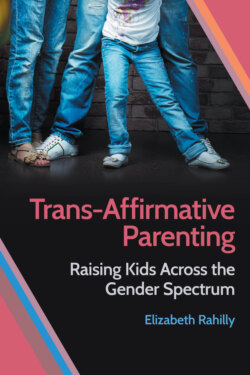Читать книгу Trans-Affirmative Parenting - Elizabeth Rahilly - Страница 12
На сайте Литреса книга снята с продажи.
Historical and Cultural Contexts
ОглавлениеIn The History of Sexuality, social theorist Michel Foucault famously argued that the “homosexual” was “invented” by the psychiatric sciences in the nineteenth and twentieth centuries. While homosexual acts and desires have long existed, Foucault explained, the notion of a distinct type of same-sex-oriented person did not. Instead, this was a product of modern social-scientific discourses, knowledge, and systems of classification.27 In Foucauldian terms, my research project shadowed the emergence of, and “invention” of, the “transgender child,” a category largely inconceivable to parents prior to the twenty-first century.28 Like all parents, the parents I studied are situated in a very specific historical moment, one in which parent support groups and social networks for transgender children have grown exponentially across the United States and Canada, new medical options for childhood transitions have emerged, new possibilities for self-identity exist, and new terminology is ever evolving. The whole world of gender and sexuality, it seems, is being challenged afresh—and gender-nonconforming youth are at the center of these shifts.29
But beyond the sociocultural advent of the transgender child are broader historical developments that are key to understanding the contemporary families in this book. These developments include (1) intensive, child-centered parenting, including the raced and classed aspects of this; (2) second-wave feminism, which left an imprint on contemporary parents in its wake; (3) the history of psychiatric research on gender-nonconforming children; and (4) the LGBTQ rights movement. Collectively, these four broad areas offer key sociohistorical context for my research participants and shed light on the culturally specific modes of parenting I observed.
